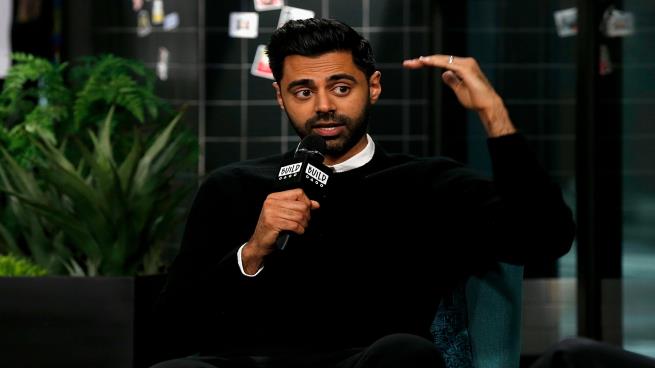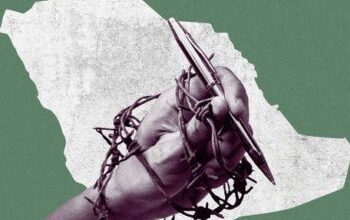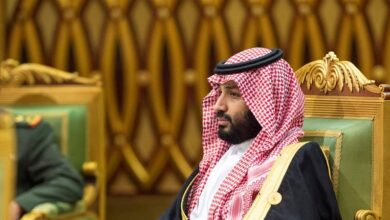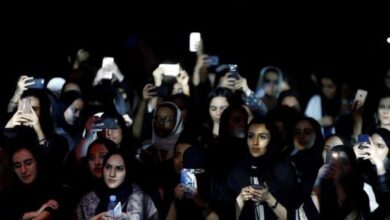Saudi’s crackdown on freedoms affects Netflix

The online entertainment and movie content, Netflix, released its first report on social and environmental governance, highlighting cases of content removal at the request of governments.
Netflix reported that it had deleted a total of nine movies and TV shows since its launch, noting that it would reveal government requests annually.
In 2019, the platform deleted one episode of the “Patriot Act with Hassan Minhaj” show in the Kingdom after receiving a written request from the “Saudi Communications and Information Technology Commission” in the Al Saud system.
The move has sparked outrage in the United States and elsewhere, and many say it threatens freedom of expression.
In the relevant episode of the comic political program, American comedian Hassan Menhaj directed criticism of the Al Saud regime over the killing of journalist Jamal Khashoggi, inside his country’s consulate in Istanbul, Turkey, in October 2018.
“It is now time to reassess our relationship with Saudi Arabia,” Minhaj said. I mean this as a Muslim and as an American. ”He also criticized the Kingdom for its involvement in the Yemen war, describing it as a despotic state.
Amnesty International condemned “Saudi Arabia’s control of Netflix,” and described it as “further evidence of a relentless crackdown on freedom of expression.”
While the program is being watched by countless viewers around the world, users in Saudi Arabia can no longer watch the episode on Netflix.
The Financial Times reported initially that Netflix had stopped broadcasting the episode to users in Saudi Arabia at the request of Riyadh.
“We strongly support artistic freedom around the world and we did not delete this episode in Saudi Arabia, until after we received an official legal request from the government – to comply with the country’s domestic laws,” the Financial Times newspaper quoted a spokesman for the website as saying.
As the company stated to the newspaper, the Ministry of Information has relied in the Saudi system on the law against electronic crime, which states that “content that would affect public order, religious values, customs and privacy of citizens via the information network or computer” constitutes a criminal crime punishable by imprisonment For a period of up to five years.
This episode continues to be watched by users in the Kingdom on the program’s YouTube channel – and it appears that Riyadh has not asked Google’s partner to delete the video.
The anger at the delete of the episode on the “Netflix” site was great, as one of the users wrote in a Tweet on Twitter: “Many of us Arabs were very excited when the website” Netflix “launched its section in the Middle East and North Africa, because we thought It is a way to get around censorship. But with what happened now, I think that is over.”
A tweeter, Evan Greer, wrote about the rapid reaction of technology companies in the direction of government satisfaction, saying that “the increasing speed of technology companies willing to do anything to satisfy authoritarian governments is scary, but not surprising.”
For her part, Karen Attia, editor of The Washington Post, wrote in a tweet on Twitter that freedom of expression in the Arab world, which Khashoggi worked on, was not only related to journalists, but also to “artists, comedians, cartoonists, musicians, activists, Anyone who wants to express their views on society.”
Human rights activists also protested, and a spokeswoman for Human Rights Watch told the British Guardian newspaper: “Any artist whose work appears on Netflix should show his anger toward the company, which agreed to censor a comedy show because the Saudi royal family complained about it.”
“Netflix runs the risk of starting the Kingdom’s zero-tolerance policy regarding freedom of expression and is thereby helping the authorities prevent people from the right to free access to information,” the New York Times quoted an Amnesty International representative as saying.
Economic interests appeared to play a role, as Netflix, whose current market value is estimated at $142 billion, has expanded dramatically in recent years. In 2016 alone, the company’s programs and films were available in 130 new countries, including in Saudi Arabia.
Mavi Godarzi believes that these interests require companies to come to terms with the values they claim, and he says: “Companies must balance between interests and values.” There is a problem, because it is also about exporting cultural goods and beliefs. The issue that companies that expand around the world have to adapt to national law has not been questioned until now and has not been discussed widely.”





